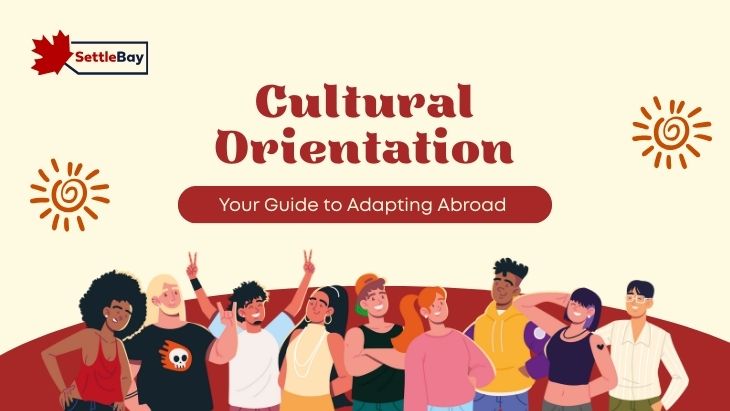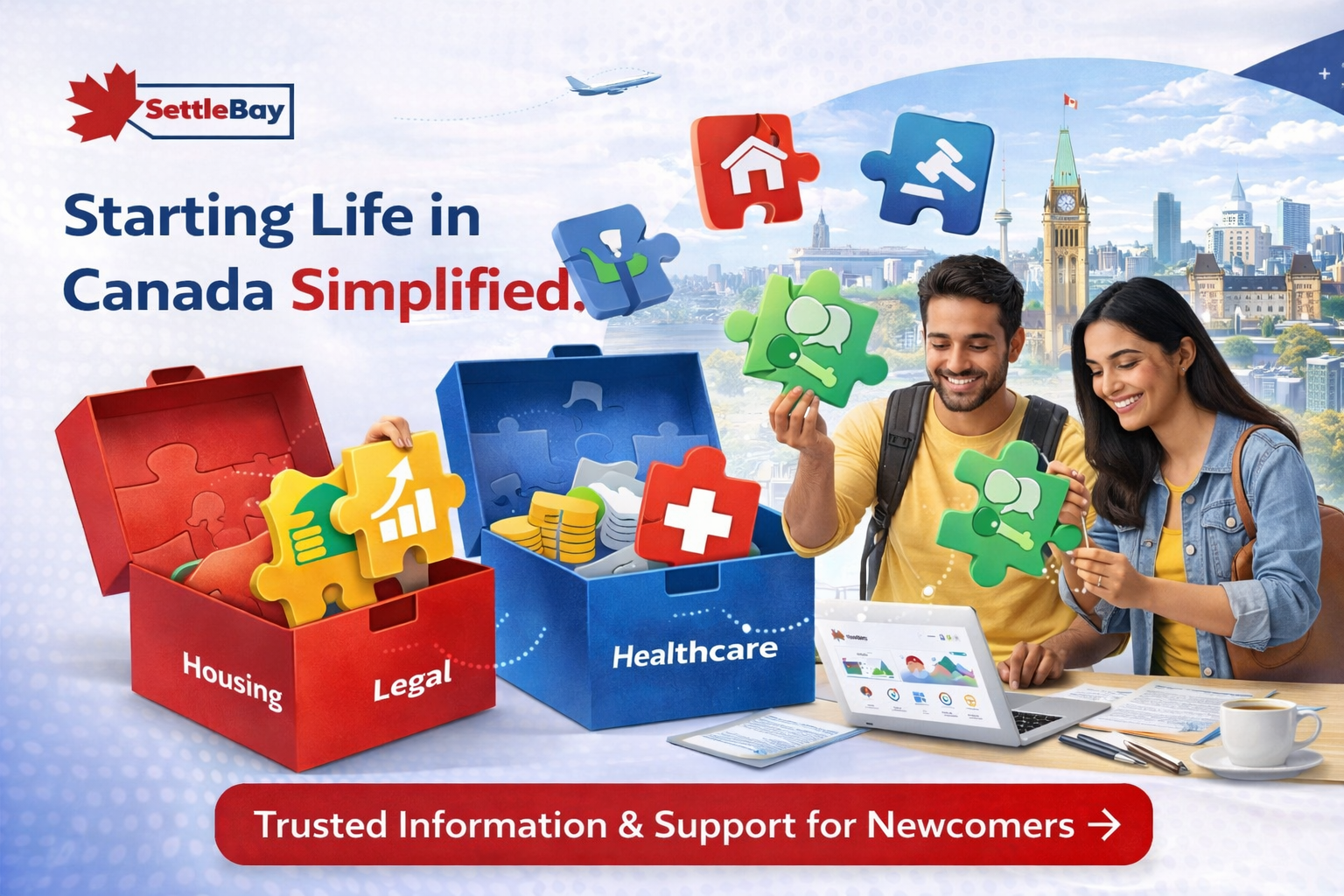Cultural orientation can be defined as acquiring and familiarizing oneself with cultural norms, behaviors, communication styles, and social expectations of a country to which one is moving. It assists beginners in understanding the way people act, the way work environments work, and the way societies relate.
In the process of relocating to a foreign country, it is essential to learn about the local culture. It eliminates uncertainty, lessens misunderstanding, and helps you feel confident in yourself in new situations. Cultural orientation gives you a better chance of communication, building relationships, and engaging yourself in both professional and community life.
Cultural orientation prepares a path to successful adaptation both on personal and professional levels. Cultural awareness is the basis of success in the long perspective, whether you are seeking permanent residency, joining a study program, or commencing your job search for immigrants.
What is Cultural Orientation?
In its essence, cultural orientation refers to structured education of social and behavioral principles in a different nation. It consists of communication patterns, etiquette, values, workplace culture and expectations.
Some of the important elements of cultural orientation are
• Knowledge of social norms and behavior.
• Acquiring acceptable communication styles.
• Managing the workplace expectations.
• Observing respect for values and beliefs.
• Developing elasticity and cultural intelligence.
One should not confuse cultural awareness, cultural intelligence, and cultural adaptation:
• Cultural awareness is being mindful of the fact that there are cultural differences.
• Cultural Intelligence (CQ) is the skill to decipher the unknown behavior and respond in a suitable manner.
• Cultural Adaptation Adapting your behavior to the new culture.
Cultural orientation provides the knowledge and confidence that the expats, students and immigrants require to successfully make the transition. This is particularly important to the newcomers through the Canada Immigration Services, where the process of assimilating into Canadian society demands that one learn the local value, diversity and communication standards.
The Reason Cultural Orientation Matters When Relocating Abroad
Relocating to a foreign country is an exciting and challenging experience, and cultural orientation can make your relocation comfortable in a few significant ways:
1. Helps Reduce Culture Shock
Newcomers are likely to experience culture shock. Learning about the local traditions will minimize anger, fear and frustration levels.
2. Enhances socialization and communication
It is good to know how people communicate, be it directly or indirectly, to enable you to relate more and not be misunderstood.
3. Develops Trust in Everyday Life
Cultural orientation simplifies things in terms of the food ordering process through to transportation in the society.
4. Enhances Workplace Integration and Career Opportunities
Employers are concerned with candidates who are aware of work norms. To the immigrants starting their job search, cultural fit makes them more employable and brings them into the team comfortably.
Important Cultural Factors You Should Know
1. Communication Styles
Communication in different cultures is different. Direct communication is appreciated in some countries, while others are high-context and non-verbal communication countries.
This knowledge will make you make sense of messages in the right way and speak in a respectful manner.
• Verbal Messages: Tone, production, and wording.
• Non-Verbal Cues: Eye contact, gestures, and personal space.
• High- vs. Low-Context Cultures: The extent to which communication is based on either an explicit or implicit meaning.
2. Social Etiquette
Social behavior involves courtesy, greetings, body language and cultural politeness.
Key aspects include:
• Handshakes vs. bows
• Concepts of personal space
• Time-punctuality and time-respect.
• Proper greetings and addressing.
3. Workplace Culture
All places of work have their own expectations, but one of the largest contributory factors is culture.
Common factors include:
• Style of leadership—authoritative or collaborative.
• Teamwork expectations
• Professionalism and dress codes.
• Work-life balance
4. Values, Beliefs, and Norms
Basic core cultural values affect actions, decisions, and attitudes of people.
Knowing them will make you know how to interpret behaviors and how to behave accordingly.
5. Everyday Living and Social Activity
These include:
• Eating habits and demeanor.
• Cleanliness and urban conduct.
• The community rules and social responsibilities.
Knowing these aspects will make you feel a part of it and will lower the likelihood of feeling like an outsider.
Selected Obstacles of Adapting Overseas
Although cultural orientation is useful, newcomers are usually faced with barriers such as:
1. Language Barriers
There are differences in languages and accents, and it is difficult to communicate.
2. Cultural Misunderstandings
The meaning of small gestures can vary, causing unintentional offense.
3. Homesickness
The absence of a familiar environment is a usual aspect of adaptation.
4. Problems with making social contacts
Social norms can also complicate the establishment of relationships.
5. Workplace Differences
The emergence of new professional demands can be confusing.
Useful Advice to Succeed in Cultural Orientation
1. Research Before You Move
Get to know the history of the country, values, and lifestyle.
2. Get at Local and Expat Communities
Social support is useful in helping you to integrate more quickly.
3. Learn Basic Local Phrases
Learning to use expressions enhances confidence.
4. Notice and Change Social Etiquette
Observe the behavior of locals and reflect the acceptable norms.
5. Practice Active Listening
It would assist you in preventing miscommunication and establishing a connection.
6. Engage in cultural activities.
Participate in events, social events, and festivals.
7. Participate in Cultural Orientation Programs
Most of the Canada immigration services have free settlement and cultural orientation seminars.
The Power of Cultural Orientation in Promotion of Professional Success
The information about the culture is a good asset to new entrants who would like to have career advancement.
1. Enhances Better Relationships with Colleagues
Knowing how to behave in the workplace simplifies the process of cooperation.
2. Enhances Collaboration and Communication
Effective communication will result in more teamwork and productivity.
3. Prevent Workplace Conflict
Being culturally aware will prevent the possibility of being misunderstood.
4. Increases Workability and Profiling
In the process of seeking employment, the immigrants are favorable to employers of flexible and culturally sensitive candidates.
Cultural Orientation Resources and Tools
Today's cultural orientation is facilitated due to the availability of resources:
Cases of online courses and training programs
Coursera and Udemy are two platforms where cultural intelligence can be taken.
Language and Communication Applications
Applications like Duolingo or HelloTalk can be used to train language skills.
Immigration Resources or Government
Procedural accountability, community training, and introductory programs of Canadian settlement organizations.
Books, Podcasts, and Guides
Podcasts and cultural books are useful in terms of daily life and expectations.
Conclusion
When one is adjusting to a new country, cultural orientation is an important process. It assists you to know about local standards, act in an appropriate manner, and establish valuable relationships.
Whether you are on the move to utilize the services of Canada immigration or getting ready with the job hunt among the immigrants, cultural orientation will provide you the knowledge, confidence and flexibility necessary in the process to succeed.
SettleBay is determined to help newcomers with the transition process, ensuring that they have a successful settlement. Contact SettleBay to get started.
FAQs:
1. What is the purpose of cultural orientation for newcomers?
It helps individuals understand local norms, communication styles, and expectations to adapt smoothly in a new country.
2. Do Canada immigration services offer cultural orientation?
Yes, many immigration and settlement agencies offer cultural orientation sessions for free.
3. How does cultural orientation help with the job search for immigrants?
It improves communication skills, workplace understanding, and professional confidence.
4. Can cultural orientation reduce culture shock?
Absolutely. It prepares newcomers in advance, minimizing confusion and emotional stress.
5. How long does it take to fully adapt to a new culture?
Adaptation varies by individual, but active participation and consistent learning speed up the process.





Leave a reply